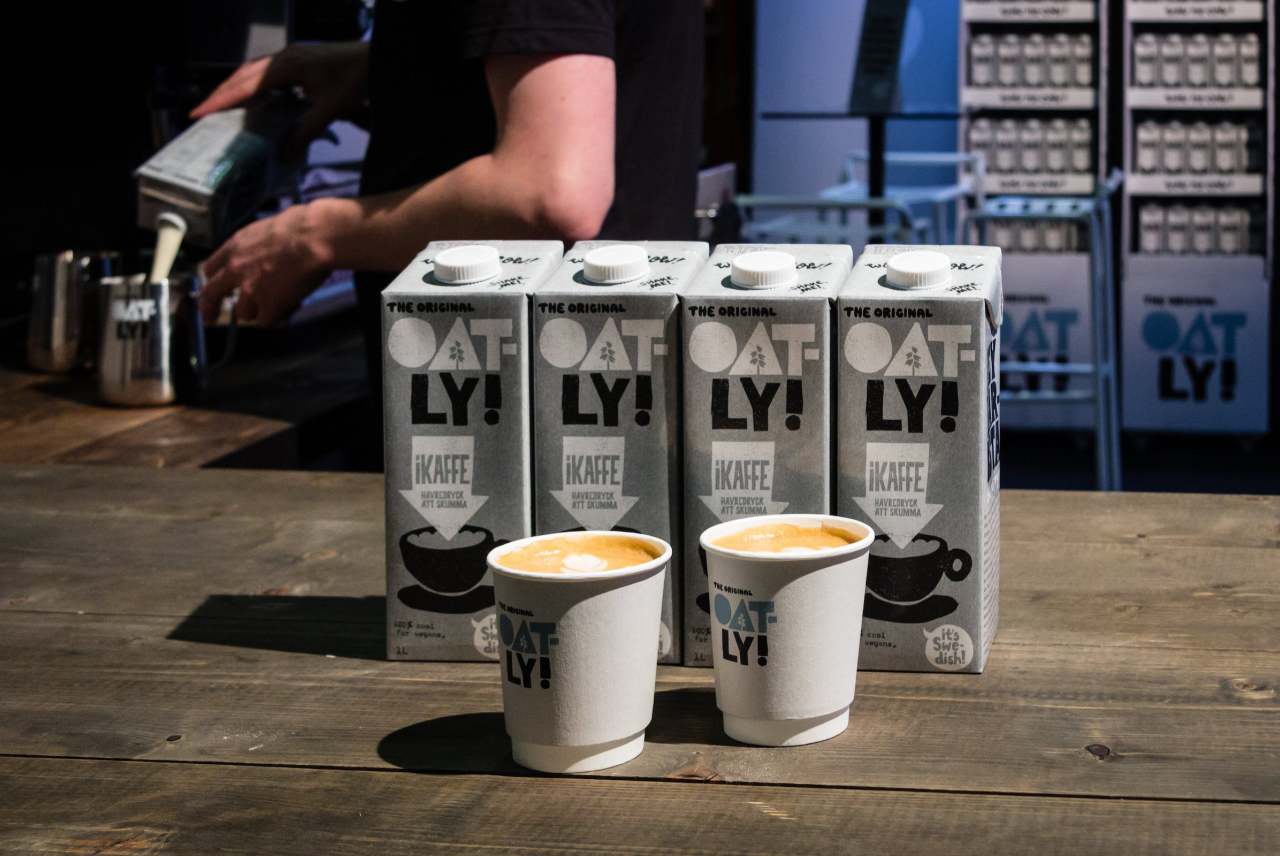Who owns Oatly?
Oatly’s ownership is complex: it’s part-owned by several companies, one of which is ultimately owned by the Chinese state.
Its corporate family tree contains lots of non-vegan brands such as Tony’s Chocolonely, a cream cheese, investor Ballie Gifford, and a meat-based pet food brand.
In 2020, it received a minority investment from private equity firm Blackstone. Blackstone’s CEO donated to Trump’s 2020 election campaign and backed him again in 2024. It was the 2020 investment which trigged calls for a boycott, and Oatly to respond to the criticism to explain its expansion plan.
Animals
While Oatly itself is a vegan brand, it’s ultimately owned by the company Verlinvest – which has other brands in its portfolio like Tony’s Chocolonely that use animal products without any detail about how they support animal welfare. Other companies in Oatly’s corporate family tree include a non-vegan cookies chain called Insomnia Cookies, a food company called Epigamia which sold, for example, cream cheese, and pet food company called Tom & Co which sold meat-based animal foods. Oatly scored 60/100 in our animals rating.
Oatly does seem less linked to animal products than some other vegan milk brands though. Competitors Alpro, Jord, and Sojade are all owned by big dairy companies. Minor Figures is owned partially by dairy company Danone. Our guide to plant milks has more details on these brands.
Environment
Oatly is a vegan brand which immediately makes it a better option than dairy milk when it comes to carbon emissions.
It received full marks in our climate rating, as it had fully calculated its carbon emissions including in its supply chain and had carbon reduction targets in line with international climate change agreements. It had some good discussion round actions it would take to reduce emissions in further too, including aiming for all facilities to source 100% renewable energy by 2029.
Anti-social finance
One of Oatly’s directors earned £2.2m in 2023, resulting in it losing 10 marks in our company ethos rating for excessive pay.
Oatly owns an investment company in Hong Kong – a high risk company type for tax avoidance, located in a tax haven. It also had subsidiaries in Netherlands, Singapore and Switzerland which are also tax havens, without clear descriptions of why it has operations there to ensure that it wasn’t for tax avoidance reasons. Oatly scored 20/100 in our tax conduct rating.
Political activities
In 2021 Oatly lost a legal battle against Glebe Farm, which it accused of having branding too similar to Oatly’s.
Oatly also took issue with the trademark name of Oato, saying it was too similar to another of Oatly’s registered trademarks, Oatado. Oatly was partially successful and as a result Oato is limited in the types of products it can sell under its brand name. Oato (a small company with a £7m turnover and 1/40th the size of Oatly) was ordered to pay Oatly’s costs, the grand total of £810.
Oatly also faced a legal challenge from Dairy UK, the trade association of the British dairy industry. They argued Oatly shouldn’t be allowed to use the term “post milk generation” because the word milk should only be used in relation to “mammary secretions”. A judge ruled in 2024, after four years of legal battle, that Oatly could keep using the phrase.





